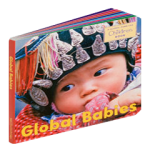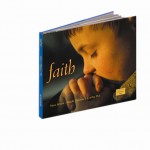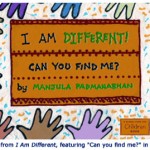The Global Fund for Children is a non-profit organization that works to improve the dignity of children, through grant-making and partnering with local, community-based organizations that serve children in 75 countries around the world, and also by publishing books that both help to eradicate poverty through the sale of books and spread knowledge of and create empathy for diverse cultures among young readers ages 0 to 14.
The books that the Global Fund for Children publishes promote the dignity of children everywhere; then the proceeds from the book sales go to support the organization’s grant-making work.
I spent several weeks going over their books and, in some cases, reading them aloud to my baby. He loves Global Babies and Faith. And I love Nasreen’s Secret School, even though it’s a little advanced for him.
I sat down and spoke with Cynthia Pon, director of the Global Fund for Children Books, to get a better idea of their mission and find out how those of us who love children’s books can support the organization. Here is an except from the interview.
J.L. Powers: Your website states that you have 3 objectives for the children’s books you publish: to present positive images and stories of children; to promote cultural diversity; and to foster global citizenship. Can you tell me what you guys mean by “global citizenship?” How can books help foster that?
Cynthia Pon: It is a fundamental value of our organization that our depiction of children will be positive. We try to instill a sense of hope so that even if children are growing up in poverty, that is not the last word or image of them.
I am as intrigued as you are with the phrase “global citizenship.” I grew up in Hong Kong during a time when it was still a British colony. So I was used to growing up with different cultural “rivers”, as it were, where you have different streams meeting and fertilizing one another; in that sense, I think it is a global outlook that we want to encourage among children, particularly in this society. The latest studies still reveal that our children here [in the U.S.] don’t do as well in geography. Because the world, whether we like it or not, is becoming more globalized, and what happens in one place impacts other places as well, it’s important to grow up and be informed about what is happening. Besides the knowledge and being informed, it is also important to care. So maybe in a nutshell, it’s a knowledge of the world around you, to be compassionate, to care.
J.L. Powers: Benedict Anderson talks about how nations are formed because we “imagine” that those of us living within the geographical boundaries of one country are all connected to each other—he calls it an “imagined community.” It sounds like you are arguing for an “imagined community” that is global rather than national.
Cynthia Pon: Yes. In Children of the U.S.A., we try to convey how global our communities are within the U.S. itself. In every city or town that we feature, we really see a conglomeration of different ethnicities, people of different faith traditions, people of different abilities coming together, living side by side. So I think that’s the idea of breaking down the boundaries that you talked about as an imagined community and giving a sense that, within the microcosm of one community, it’s made up of different strands. So that might be one take on the global citizenship [concept], the U.S. being a particular case because our people often come from different places and bring with them different heritages and legacies, and that’s what constitutes our nation.
One thing that comes to my mind is our new online resource—Kids Becoming Global Citizens. That’s one of our latest online sources that we provide free to the community. There we’re trying to create some kind of tool to help parents and educators through something as traditional as books but also through multimedia, through online games, to help children to broaden their perspective. Parents and children, for instance, could read a book together about South Africa and then they can discuss further, based on the materials of that book, what it’s like, put themselves in the shoes of those children, what does everyday look like for the child in that community. One of the games we reviewed is about rice and it helps children imagine the role that rice plays in diet, the scarcity of riche in some places—to teach them about food security.
J.L. Powers: How can readers get involved in what you do?
Cynthia Pon: We hope that adults who come across our books would share them with the young people in their life, and have conversations about these issues. Because we are a grantmaking organization, we are always in search of support so donations would always be welcome. People can also go to our website and look at some of the organizations we work with, both domestic and international. Right now we don’t have the capacity to host or organize volunteers but some of our partners do need volunteers. I would encourage people to make use of our website because it has a lot of knowledge residing there as well. Some school communities, spearheaded by students themselves in some cases, have created fundraising activities that can be designated for a particular project. And of course the purchase of each book goes towards supporting our projects as well.
J.L. Powers: Do you have a favorite book among the collection of Global Fund for Children’s books?
Cynthia Pon: I guess it’s hard to name a favorite book. By virtue of working on them all for several years, I have an affection for each one—they are like your children. Last night, the two other co-authors of Faith and I went to the Church and Synagogue Library Association (CSLA) Annual Conference where we received the Rodda award for Faith. That award is given once every three years for a book that contributes to spiritual growth and inquiry among children so we’re very honored to have received it.
J.L. Powers: What’s your latest book?
Cynthia Pon: The newest book that just came out is I Am Different. That is a picture-puzzle book that features 16 different languages. It can be read pictorially, visually, by very young kids but for kids who can start to read…within each spread, children are supposed to find the one illustration that is different from all the rest. Each puzzle spread repeats the phrase, “Can you find me?” in one of 16 different languages. And it features interesting facts about each language. So older kids would have fun pronouncing words in foreign languages but also learning how languages evolve and borrow words from one another.
For more information, please visit the Global Fund for Children’s website.



1 comment for “Global Fund for Children: Publishing Books, Supporting Children Globally”